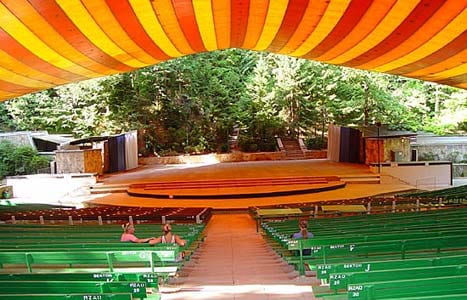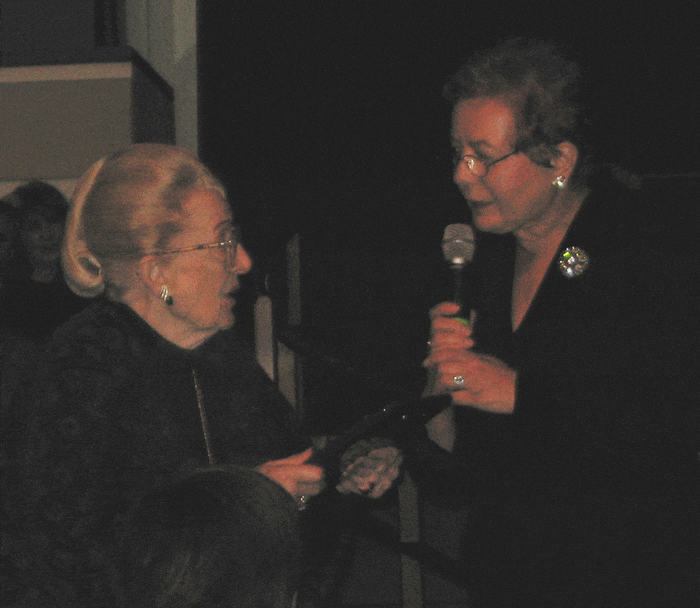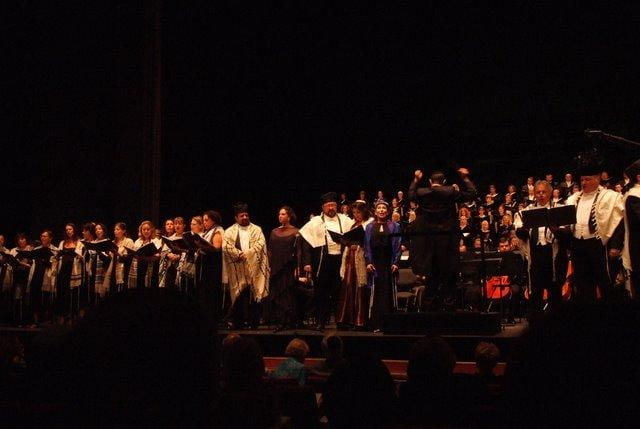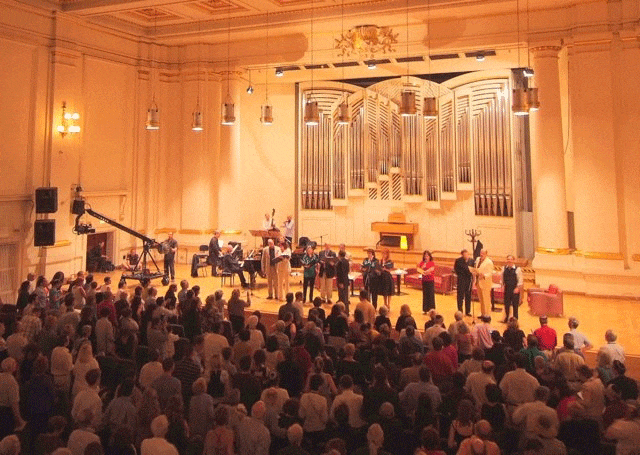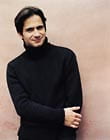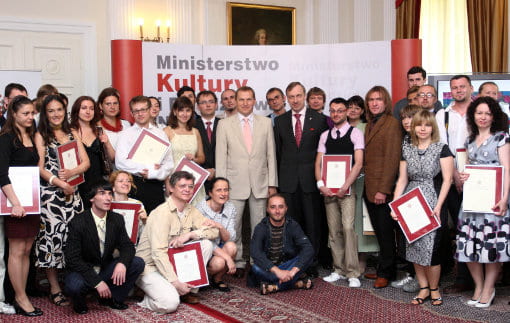Polish Music Center Newsletter Vol. 15, no. 8
Obituary
The Passing Of A Friend
 Elizabeth Vars died on 10 June 2009 in Los Angeles after a long illness. She was 93 years old and the widow of Henry Vars [Henryk Wars], a prominent Polish composer of film music who died in Los Angeles on 1 September 1977. Born Elżbieta Rowińska in Warsaw on 16 June 1916 (28 June 1916 new style), she was introduced to Henryk Wars in Warsaw in the late 1930s by a mutual friend. She came from a comfortable middle-class family of factory owners. After the outbreak of World War II in September 1939 she received news from Henryk Wars that he managed to escape to Lwów, then in the Soviet occupation zone, and decided to join him there. She arrived in Lwów in late December 1939 and, from that time on, was Wars’ faithful companion until his death. She accompanied Wars to Persia in early 1942 when his musical group, Tea-Jazz, was allowed to leave the Soviet Union and became attached to the Polish Army’s Second Corps led by General Władysław Anders. Together with Wars, she joined the army and with it moved from Teheran to Baghdad, and then to English-administered Palestine. Wars’ ensemble, Polish Parade, continued with the Second Corps to Monte Cassino and, after the end of hostilites, Elizabeth and Henryk Wars were demobilized in Italy. Throughout their wartime ordeal, they became close lifelong friends of General Anders and his wife, Renata (pictured at left).
Elizabeth Vars died on 10 June 2009 in Los Angeles after a long illness. She was 93 years old and the widow of Henry Vars [Henryk Wars], a prominent Polish composer of film music who died in Los Angeles on 1 September 1977. Born Elżbieta Rowińska in Warsaw on 16 June 1916 (28 June 1916 new style), she was introduced to Henryk Wars in Warsaw in the late 1930s by a mutual friend. She came from a comfortable middle-class family of factory owners. After the outbreak of World War II in September 1939 she received news from Henryk Wars that he managed to escape to Lwów, then in the Soviet occupation zone, and decided to join him there. She arrived in Lwów in late December 1939 and, from that time on, was Wars’ faithful companion until his death. She accompanied Wars to Persia in early 1942 when his musical group, Tea-Jazz, was allowed to leave the Soviet Union and became attached to the Polish Army’s Second Corps led by General Władysław Anders. Together with Wars, she joined the army and with it moved from Teheran to Baghdad, and then to English-administered Palestine. Wars’ ensemble, Polish Parade, continued with the Second Corps to Monte Cassino and, after the end of hostilites, Elizabeth and Henryk Wars were demobilized in Italy. Throughout their wartime ordeal, they became close lifelong friends of General Anders and his wife, Renata (pictured at left).
 Thanks to Artur Rubinstein’s recommendation to the US Embassy in Rome, Henryk and Elizabeth Wars were able to immigrate to the United States. They settled in Los Angeles in 1947 and were married, living first in Hollywood then moving to Brentwood in 1961. In the U.S. Henryk and Elizabeth Wars became naturalized and changed the spelling of their name to phonically equivalent “Vars.” Whilst Henryk gradually rebuilt his career in film scoring, Elizabeth worked in a variety of jobs, including her long stint at the famous Don Loper’s fashion boutique store in Beverly Hills.
Thanks to Artur Rubinstein’s recommendation to the US Embassy in Rome, Henryk and Elizabeth Wars were able to immigrate to the United States. They settled in Los Angeles in 1947 and were married, living first in Hollywood then moving to Brentwood in 1961. In the U.S. Henryk and Elizabeth Wars became naturalized and changed the spelling of their name to phonically equivalent “Vars.” Whilst Henryk gradually rebuilt his career in film scoring, Elizabeth worked in a variety of jobs, including her long stint at the famous Don Loper’s fashion boutique store in Beverly Hills.
 After her husband’s death in 1977, Elizabeth Vars devoted her energies to keeping the legacy of Henry Vars’ music alive. Their house in Brentwood was left unchanged, decorated by carefully preserved furnishings, Henry’s Steinway grand, paintings and antiques collected by them during their many years of travel around the world, and Vars’ caricatures of celebrities that he enjoyed drawing in his spare time.
After her husband’s death in 1977, Elizabeth Vars devoted her energies to keeping the legacy of Henry Vars’ music alive. Their house in Brentwood was left unchanged, decorated by carefully preserved furnishings, Henry’s Steinway grand, paintings and antiques collected by them during their many years of travel around the world, and Vars’ caricatures of celebrities that he enjoyed drawing in his spare time.
Having travelled back to Poland with her husband in 1967 (their arrival in Warsaw is pictured at right), Elizabeth Vars returned there in the mid-1980s and set up a foundation for young composers in conjunction with ZAIKS, the Polish authors’ rights society. It was closed down in the late 1990s.
 Always elegant and noble in her appearance, Elizabeth Vars was active in Polish society circles, charming the cultivated elites of yesteryear with her wry humor and sharp attention to detail. Conversant in many topics and eager to discuss everything from politics to art and culture, she was fluent in Russian and Italian and faithfully subscribed to the Los Angeles Times, which she read daily. She was a benefactor of many causes, and her place in history will be assured by the donation of an unprecedented collection of Henry Vars’ music to the Polish Music Center at USC in 2005. Her generous gift consisted of heretofore unknown manuscripts of Vars’ orchestral music, including Symphony No. 1, Piano Concerto, an orchestral suite City Sketches, an overture Maalot, and numerous other short pieces and drafts of chamber and orchestral music.
Always elegant and noble in her appearance, Elizabeth Vars was active in Polish society circles, charming the cultivated elites of yesteryear with her wry humor and sharp attention to detail. Conversant in many topics and eager to discuss everything from politics to art and culture, she was fluent in Russian and Italian and faithfully subscribed to the Los Angeles Times, which she read daily. She was a benefactor of many causes, and her place in history will be assured by the donation of an unprecedented collection of Henry Vars’ music to the Polish Music Center at USC in 2005. Her generous gift consisted of heretofore unknown manuscripts of Vars’ orchestral music, including Symphony No. 1, Piano Concerto, an orchestral suite City Sketches, an overture Maalot, and numerous other short pieces and drafts of chamber and orchestral music.
With this donation, a new facet of her husband’s music was unveiled. The world premiere performance of Henry Vars’ symphonic music was given by Łódź Philharmonic Orchestra led by Krzesimir Dębski at a concert in Łódź, Poland, in June of 2005. Another special concert featuring Henry Vars’ beloved popular music was held at USC’s Bovard Auditorium in October of 2005, in recognition of Mrs. Vars’ donation. During that concert, Elizabeth Vars was honored with the Amicus Poloniae Award, bestowed upon her personally by then Consul General of the Republic of Poland in Los Angeles, Madame Krystyna Tokarska-Biernacik (pictured below). Since that time, Elizabeth Vars’ interviews recollecting her life with Henry Vars served as basis for a cycle of eight 50-minute broadcasts on Polish Radio in November 2007 and further concerts of Vars’ symphonic music in Kraków and Warsaw.
Although frail and ailing during the past year, her mind and memory were still sharp, and she insisted on living at her Brentwood home until the very end of her life. She leaves behind her stepson Robert Vars and stepdaughter Danuta (Diana) Mitchell as well as their children and grandchildren. Following her last wish, her ashes were interred next to her husband’s at Hillside Memorial Park in Los Angeles on 14 June 2009.
[mz]
PMC News
Fruits Of The Exchange: Central Coast Youth And Wines In Poland

Following up on the cooperation agreement signed in November 2008 between Frank Mecham, former Mayor of Paso Robles, and Mieczysław Kras, Supervisor of the Tarnów District, the first cultural exchange between the two cities was officially inaugurated in June of this year. Three young pianists from California—finalists of the 2007 and 2008 Paderewski Youth Piano Competition in Paso Robles—were invited for a week of workshops and master-classes at the manor house on the estate Paderewski once owned in Kąśna Dolna, 25 miles south of Tarnów. The young Americans were joined by three Polish counterparts, all of whom were selected for the program by the Director of the Paderewski Center in Kąśna Dolna, Madame Krystyna Szymańska and her board. Tarnów City Council President, Ryszard Żądło, together with the District Supervisor Kras and the Paderewski Center provided accommodations, daily catering, sightseeing excursions, and transportation for all participants. Workshops and master-classes were conducted by pianist Marek Zebrowski and, at the end of program, the participating musicians presented a recital at the manor house on June 27, 2009.
 Matthew Fauria, Rory McClish, and Lindsay Reed arrived in Kraków on June 20, accompanied by a chaperone, Teresa McClish, Rory’s mother. The next morning the American visitors took a walking tour of Kraków’s most important tourist attractions, including the Royal Castle, Cathedral, Old Town Square and Market, and sampled local cuisine and tasty ice cream treats. Late in the afternoon, Mr. Ryszard Zabielny, Deputy Director of the Paderewski Center in Kąśna Dolna, arrived to transport the participants to the Paderewski estate in Kąśna Dolna. The two-hour trip from Kraków on picturesque country roads gave the visitors—for whom this was their first trip to Europe—a good taste of the adventures that were still to come. Upon arrival at the manor house they were greeted by the staff with supper, served at the office building right next to the manor. Formerly used to house the servants and farm employees, the building has been attractively renovated and converted into a comfortable hotel. For the next eight days it served as a base for all activities of the group.
Matthew Fauria, Rory McClish, and Lindsay Reed arrived in Kraków on June 20, accompanied by a chaperone, Teresa McClish, Rory’s mother. The next morning the American visitors took a walking tour of Kraków’s most important tourist attractions, including the Royal Castle, Cathedral, Old Town Square and Market, and sampled local cuisine and tasty ice cream treats. Late in the afternoon, Mr. Ryszard Zabielny, Deputy Director of the Paderewski Center in Kąśna Dolna, arrived to transport the participants to the Paderewski estate in Kąśna Dolna. The two-hour trip from Kraków on picturesque country roads gave the visitors—for whom this was their first trip to Europe—a good taste of the adventures that were still to come. Upon arrival at the manor house they were greeted by the staff with supper, served at the office building right next to the manor. Formerly used to house the servants and farm employees, the building has been attractively renovated and converted into a comfortable hotel. For the next eight days it served as a base for all activities of the group.
 Piano workshops, conducted by Marek Zebrowski and an assistant, Klaudia Kukla, a native of Tarnów who currently studies piano in Oklahoma, began on Monday, June 22. All music classes were held in the manor house, which has several grand pianos located throughout its spacious interior. Courses began each morning at 10 and ended at 7 p.m. with a break for lunch. Each participant had 2 private one-hour lesson per day, with Mr. Zebrowski and Ms. Kukla, and the rest of the day was spent practicing. Barbara Doroszuk, Marian Michalski, and Alicja Wójtowicz were the young Polish participants, also winners of various local competitions.
Piano workshops, conducted by Marek Zebrowski and an assistant, Klaudia Kukla, a native of Tarnów who currently studies piano in Oklahoma, began on Monday, June 22. All music classes were held in the manor house, which has several grand pianos located throughout its spacious interior. Courses began each morning at 10 and ended at 7 p.m. with a break for lunch. Each participant had 2 private one-hour lesson per day, with Mr. Zebrowski and Ms. Kukla, and the rest of the day was spent practicing. Barbara Doroszuk, Marian Michalski, and Alicja Wójtowicz were the young Polish participants, also winners of various local competitions.
 Two afternoons—Tuesday, June 23 and Thursday, June 25—were devoted to sight-seeing. City Council President, Ryszard Żądło (pictured at right with the group), gave a detailed tour of Tarnów, narrating its fascinating 800-year history. After a treat of hot chocolate and delicious cakes, the group walked around Tarnów’s beautiful Old Town Square with its Renaissance City Hall and the Cathedral. A brief visit to an old farmhouse that was once an inn for travelers and now serves as the museum of history of the Roma people (the only such institution in Europe) gave the American tourists a chance to imagine the lives of various nationalities that inhabited that part of Europe for centuries. A quick dash to the elegant fin-de-siècle hotel across the street saved the group from a violent afternoon thunderstorm which soaked this charming hillside town.
Two afternoons—Tuesday, June 23 and Thursday, June 25—were devoted to sight-seeing. City Council President, Ryszard Żądło (pictured at right with the group), gave a detailed tour of Tarnów, narrating its fascinating 800-year history. After a treat of hot chocolate and delicious cakes, the group walked around Tarnów’s beautiful Old Town Square with its Renaissance City Hall and the Cathedral. A brief visit to an old farmhouse that was once an inn for travelers and now serves as the museum of history of the Roma people (the only such institution in Europe) gave the American tourists a chance to imagine the lives of various nationalities that inhabited that part of Europe for centuries. A quick dash to the elegant fin-de-siècle hotel across the street saved the group from a violent afternoon thunderstorm which soaked this charming hillside town.
The Thursday sightseeing trip took the group to the ancient salt mine of Wieliczka, just east of Kraków. This is one of the oldest salt mines in the world, operating since the thirteenth century and closed only recently. Its underground wonders include huge underground chambers with chandeliers and salt rock carvings, chapels and underground lakes, and many other attractions.
On Friday morning, selected members of the youth exchange program attended a press conference held in the Tarnów City Council chambers. They were joined by two wine representatives from Paso Robles—Cri Cri Solak-Eastin, a Paderewski Festival Board Member and winemaker, and Gracie Rey, representing the Paso Robles Wine Country Alliance—who were also generously hosted at Kąśna Dolna during this exchange, thanks to the support of the local government and the Paderewski Center. Supervisor Kras opened the press conference with a summary of the exchange program so far, and then invited questions from several newspapers and TV stations. Rory McClish and Marian Michalski gave statements about their experiences, Cri Cri Solak-Eastin and Gracie Rey were individually interviewed about the wines from Paso, and Marek Zebrowski provided background on the Paderewski Festival in Paso Robles.
 The culmination of the week-long piano workshops was the concert at the manor house on Saturday, June 27. One of the elegant salons in Paderewski’s manor was filled with members of the public, some of whom came on a specially chartered bus from Tarnów, and they were treated to a program of excellent music.
The culmination of the week-long piano workshops was the concert at the manor house on Saturday, June 27. One of the elegant salons in Paderewski’s manor was filled with members of the public, some of whom came on a specially chartered bus from Tarnów, and they were treated to a program of excellent music.
Alicja Wójtowicz began the program with selections from compositions by Krieger, Mikstein, Rowley and Dussek. Rory McClish came next, presenting works by Bach, Beethoven, and Chopin. He was then joined by his Polish friend, Marian Michalski, for a four-hand duet by Ravel. Lindsay Reed came next on stage, performing works by Haydn, two of her own compositions, and Paderewski’s famous Menuet. Marian Michalski then returned for a solo segment of Bach, Haydn and Miśkiewicz. He was followed by Barbara Doroszuk, who presented works by Bach, Haydn, and Chopin. Remaining on stage, Barbara was joined by Matthew Fauria; together they performed a duet by Fauré. Afterwards Matt remained on stage to end the concert with compositions by Ravel and Chopin. The audience responded with tumultuous applause and seemed especially pleased when all of six performers came on stage for a group bow.
 The evening then continued with wine tasting, featuring vintages contributed for the exchange by several Central Coast wineries, including: Cass, J. Lohr, Pear Valley, Liberty School, Eberle, Sharp’s Hill, and Vina Robles. A short presentation by Cri Cri Solak-Eastin and Gracie Rey was followed by the sampling of wines from the region where Paderewski had once owned and cultivated extensive vineyards. Cri Cri Solak-Eastin is pictured at left, demonstrating some of Paso Robles’ finest wines to enthusiastic Polish patrons after the concert.
The evening then continued with wine tasting, featuring vintages contributed for the exchange by several Central Coast wineries, including: Cass, J. Lohr, Pear Valley, Liberty School, Eberle, Sharp’s Hill, and Vina Robles. A short presentation by Cri Cri Solak-Eastin and Gracie Rey was followed by the sampling of wines from the region where Paderewski had once owned and cultivated extensive vineyards. Cri Cri Solak-Eastin is pictured at left, demonstrating some of Paso Robles’ finest wines to enthusiastic Polish patrons after the concert.
 Sunday, the last day in Kąśna, was a day of expedition into the southern resort town of Krynica, famous for its healing mineral waters. This fashionable nineteenth century resort town in the mountains is also one of the most famous winter ski destinations in Poland. Charming wooden villas with beautifully carved balconies and stately Victorian-era hotels line the park and the main promenade, where the vacationing public comes out for a stroll. Home-made ice cream, arts and crafts stalls, and souvenir shops line the park that is bisected by a swiftly-flowing mountain stream of ice cold, crystalline water. After snacking on grilled smoked sheep’s cheese, the group drove towards the Slovak border, where they took a 15-minute gondola ride to the summit of Jaworzyna Mountain. It was a sunny and warm day, with billowing white clouds dotting the blue skies, and the view of the surrounding countryside from 3,600 feet above sea level was simply stunning. On the way back, the group stopped to view a few old wooden churches and observed a Sunday folk festival in one of the nearby villages. Dancers from several nearby countries, including Slovakia, Hungary, and Romania, performed in their native costumes, with arts and crafts of all kinds on display and various local foods for sampling. The evening ended with a gala dinner served in the eighteenth century cellars of the City Hall in Ciężkowice, the parish town of Paderewski’s estate. The caterer who had supplied the visitors with the food throughout the week prepared a veritable feast of Polish cuisine. Late in the evening everybody was finally back at the hotel next to the manor house, getting ready to pack and leave the following morning.
Sunday, the last day in Kąśna, was a day of expedition into the southern resort town of Krynica, famous for its healing mineral waters. This fashionable nineteenth century resort town in the mountains is also one of the most famous winter ski destinations in Poland. Charming wooden villas with beautifully carved balconies and stately Victorian-era hotels line the park and the main promenade, where the vacationing public comes out for a stroll. Home-made ice cream, arts and crafts stalls, and souvenir shops line the park that is bisected by a swiftly-flowing mountain stream of ice cold, crystalline water. After snacking on grilled smoked sheep’s cheese, the group drove towards the Slovak border, where they took a 15-minute gondola ride to the summit of Jaworzyna Mountain. It was a sunny and warm day, with billowing white clouds dotting the blue skies, and the view of the surrounding countryside from 3,600 feet above sea level was simply stunning. On the way back, the group stopped to view a few old wooden churches and observed a Sunday folk festival in one of the nearby villages. Dancers from several nearby countries, including Slovakia, Hungary, and Romania, performed in their native costumes, with arts and crafts of all kinds on display and various local foods for sampling. The evening ended with a gala dinner served in the eighteenth century cellars of the City Hall in Ciężkowice, the parish town of Paderewski’s estate. The caterer who had supplied the visitors with the food throughout the week prepared a veritable feast of Polish cuisine. Late in the evening everybody was finally back at the hotel next to the manor house, getting ready to pack and leave the following morning.
Monday morning was spent rearranging the travelers’ luggage and several cases of wine until it was all crammed together in the van with the seven passengers and the driver for the drive back to Kraków. After 3 hours on crowded country roads, Monday afternoon was spent rehearsing for the evening’s concert at the Institute of Musicology of Jagiellonian University. The oldest university in Poland and one of the oldest in the world, Jagiellonian was founded in 1364 by the Polish King, Casimir III the Great. The concert was organized by Mr. Andrzej Sitarz, Editor in Chief of the Musica Iagellonica Press, who coordinated publicity and all logistical arrangements.
As the young pianists from California and Poland rehearsed, Cri-Cri and Gracie poured wine at an exclusive afternoon wine tasting held at the private residence of the US Consul in Kraków, the Honorable Anne Hall. Consul for Culture and Press and coordinator for the event, Susan Parker-Burns, had invited many important guests, among them owners of top-notch restaurants and hotels, captains of industry, owners of wine boutiques, wine distributors, and journalists. The Paso Robles wines scored very highly among these discriminating palates, and many expressed interest in importing them to Poland, where Central Coast varietals are completely unknown.
 Later that evening, the young Polish and American pianists repeated their program from Kąśna at the Jagiellonian University. Their program was dedicated to Ignacy Jan Paderewski, whose death anniversary fell on that day, June 29. The concert began with a warm introduction by the Director of the Institute, Dr. Renata Suchowiejko, who also provided a wonderful reception with more Polish delicacies after the concert.
Later that evening, the young Polish and American pianists repeated their program from Kąśna at the Jagiellonian University. Their program was dedicated to Ignacy Jan Paderewski, whose death anniversary fell on that day, June 29. The concert began with a warm introduction by the Director of the Institute, Dr. Renata Suchowiejko, who also provided a wonderful reception with more Polish delicacies after the concert.
Meanwhile, having finished their presentation at the American Consul’s residence, Cri Cri and Gracie raced back to pour wines after the Jagiellonian University concert. As the skies darkened outside the stylish palazzo where the concert was held, the exchange participants slowly returned to the hotel to pack and leave for California the next morning.
Cri Cri and Gracie remained in Poland for another event—the opening of the exhibit, “American Dream” at the National Museum in Kraków. The cream of the crop of Kraków society, including politicians, diplomats, and other notables, filled the cavernous hall of the museum. Central Coast Wineries were given a special table and many of the several hundred guests who attended the event had a chance to become acquainted with wines that were brought to Poland for this occasion. Read more about the musical aspects of this event in the next article.
 There is no doubt that the first step in fulfilling the agreements signed in Paso Robles last year was a resounding success. The young pianists from California and Poland gained tremendously from their joint experience of the intensive week of practice and performances. Friendships were made and the goodbyes were quite touching. Wines from the Central Coast were brought to Poland for the first time and presented in several prestigious locations to a very receptive crowd. There is a market niche that winemakers from Paso Robles and the surrounding areas can now exploit, providing alternatives to the selections from Napa Valley that currently represent California wines. The trip was not only an artistic success—it could also be a first step in establishing a successful commercial relationship between wine importers in Poland and Central Coast wine producers. Having made friends among the local authorities, US government representatives in Poland, and the Polish diplomatic representation in California, this exchange can only continue to grow and prosper.
There is no doubt that the first step in fulfilling the agreements signed in Paso Robles last year was a resounding success. The young pianists from California and Poland gained tremendously from their joint experience of the intensive week of practice and performances. Friendships were made and the goodbyes were quite touching. Wines from the Central Coast were brought to Poland for the first time and presented in several prestigious locations to a very receptive crowd. There is a market niche that winemakers from Paso Robles and the surrounding areas can now exploit, providing alternatives to the selections from Napa Valley that currently represent California wines. The trip was not only an artistic success—it could also be a first step in establishing a successful commercial relationship between wine importers in Poland and Central Coast wine producers. Having made friends among the local authorities, US government representatives in Poland, and the Polish diplomatic representation in California, this exchange can only continue to grow and prosper.
Rory McClish pictured with a bust of I.J. Paderewski at the Kąśna Dolna estate
[mz]
American Cantors Visit Poland
A remarkable visit and a deeply moving occasion can scarcely summarize the ten-day visit of cantors from all over the United States in Poland in late June and early July this year. The Cantors Assembly, an international organization, prepared a series of concerts commemorating the rich tradition of Jewish music in Poland before World War II. Over thirteen hundred cantors perished during SHOAH, and most of them came from Poland, a country with a thousand-year history of Jewish life and culture. One of the biggest temples in Eastern Europe was the Tłomacki Synagogue in Warsaw, where such extraordinary artists as Moshe Koussevitzky and David Eisenstadt created a musical tradition of unsurpassed excellence.
Today, the great Tłomacki Synagogue no longer exists but, for an evening, the music that once resonated in its magnificent interior was heard in Warsaw again. One hundred voices of the Cantors Assembly and soloists travelled to perform at the Teatr Wielki, home of Poland’s National Opera in Warsaw, on 30 June 2009. Their gala concert, “Jewish Music Expressions of the Soul: Symbols of Brotherhood and the Human Spirit,” filled the 1,800-seat auditorium to the brim. Orchestra and Chorus of the National Opera and the Alla Polacca Children’s Choir were led by conductors Nick Strimple, Charles Fox, and Joseph Ness. Cantors Rebecca Carmi, Chayim Frenkel, Raphael Frieder, Joseph Gole, Nathan Lam, Jacob Ben Zion Mendelson, Alberto Mizrahi, David Propis, Simon Spiro, and Faith Steinsnyder were heard in the program of works by Leonard Bernstein, Nick Strimple, Max Helfman, Jacob Gottlieb, Leo Low, David Roitman, Aryeh Schlossberg, Zavel Kvartin, David Eisenstadt, Pierre Pinchik, Abraham Ellstein, and Louis Lewandowski.
Film and TV composer Charles Fox was commissioned to write a composition for the occasion, based on the prayer of Pope John Paul II at the Western Wall in Jerusalem. Fox’s Lament and Prayer, an extensive work for orchestra, chorus and solo baritone, was conducted by the composer himself, whose family has roots in Warsaw.
The Gala Concert of Cantors was presented under the auspices of the office of the Prime Minister of Poland, the Minister of Culture, and the Minister of Foreign Affairs. The host for the evening was Waldemar Dąbrowski, General Director of the National Opera Theatre and the former Minister of Culture of Poland, who welcomed in fluent English the huge contingent of American visitors, since cantors brought their families and friends with them for the occasion. This festive concert was the culmination of a close collaboration between the highest echelons of Polish government and their representatives in Los Angeles with the Cantor’s Assembly and leaders of Jewish community in the United States. Paulina Kapuścińska, Consul General of Poland in Los Angles and Cantor Nathan Lam from the Stephen Wise Temple in Los Angeles spent close to a year in planning and meetings that included two preparatory trips to Poland to coordinate and launch this event.
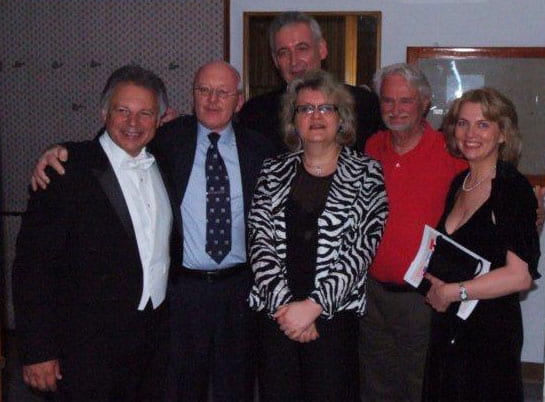
Professor Władysław Bartoszewski delivered the official remarks and remembered his fellow resistance member, Irena Sendler, whose heroic deeds saved over 2,500 Jewish children from the Holocaust. Mrs. Metuka Benjamin, Director of Education at the Stephen Wise Schools in Los Angeles awarded the “Irena Sendler Prize” to Beata Maliszkiewicz, a teacher from Opole, Poland, who instituted an innovative curriculum in her school on teaching about the Holocaust. According to the Irena Sendler Project website: “The awards are given annually to one teacher in Poland and one in the United States for their innovative and inspirational teaching of Holocaust education, in a way that reflects Irena Sendler’s respect for all people regardless of background.”
The program ended on a rousing setting of Psalm 150 by Louis Lewandowski, a composer born in Września, Poland, who served as Chief Choral Master of the Berlin Jewish community in the 1870s and 1880s. All cantor soloists joined the orchestra and chorus on stage to close this memorable evening.
 Following the Warsaw concert, cantors and their families travelled by specially chartered train to Kraków for a series of appearances at the Galicia Jewish Museum, the National Museum in Kraków and the Kraków Philharmonic. These concerts were organized in conjunction with the Embassy of the United States in Poland and the Consulate General of the United States in Kraków. Ambassador Victor Ashe was present to officially open the “American Dream” exhibit at Kraków’s National Museum on July 1 (see the poster for this exhibit to the right). For this occasion cantors Nathan Lam and Judy Greenfeld performed a short medley of American songs with pianists Michael Wiener and Marek Zebrowski.
Following the Warsaw concert, cantors and their families travelled by specially chartered train to Kraków for a series of appearances at the Galicia Jewish Museum, the National Museum in Kraków and the Kraków Philharmonic. These concerts were organized in conjunction with the Embassy of the United States in Poland and the Consulate General of the United States in Kraków. Ambassador Victor Ashe was present to officially open the “American Dream” exhibit at Kraków’s National Museum on July 1 (see the poster for this exhibit to the right). For this occasion cantors Nathan Lam and Judy Greenfeld performed a short medley of American songs with pianists Michael Wiener and Marek Zebrowski.
The Jewish Community Center in the Kazimierz District served as a focal point of many of cantors’ activities during their visit in Kraków. Its recital hall was made available for rehearsals of the cantors’ program celebrating American Independence Day. US Consul General in Kraków, Anne Hall, and Consul for Culture and Press, Susan Parker-Burns, coordinated the arrangements with the Kraków Philharmonic, where the “An American Songbook” concert was presented on July 5th. The full house clearly enjoyed selections of the most popular songs by Irving Berlin, Jerome Kern, George Gershwin, Harold Arlen, Richard Rodgers, Leonard Bernstein, Henry Vars, Charles Fox, and Jerry Bock. Soloists included Cantors Marcelo and Mariana Gindlin, Fredda Mendelson, Nathan Lam, Joseph Gole, Marcia Tilchin, Eliot Vogel, Elizabeth Shammash, David Perper, Chayim Frenkel, and Judy Greenfeld. An instrumental ensemble of guest artists was led by violinist Krzesimir Dębski, and also included bassist Tomek Kupiec, percussionist Bartek Staromiejski, and pianists David Kamenir and Marek Zebrowski. With the first notes of Irving Berlin’s God Bless America that closed the concert the crowd rose to their feet, joining the cantors on stage in song (see image below).
The Cantors’ Assembly group left Kraków on July 6 and flew to Israel to present additional concerts and religious services in Tel-Aviv and Jerusalem. Read more about the Assembly’s Poland-Israel Mission 2009 here: www.cantors.org/ca_2009_mission.php. Also, a promotional video is available on YouTube.
[MZ]
[Additional source article: poland.usembassy.gov]
Recent Donations
 Joseph A. Herter is a long-time friend of the PMC and regular contributor to PMC publications and events. The foremost scholar of the music of Zygmunt Stojowski, Mr. Herter is the author of Vol. 10 of the Polish Music History Series, Zygmunt Stojowski: Life and Music, and served as lecturer for the 2006 Paderewski Lecture-Recital. In July, Mr. Herter donated the most recent Stojowski recording to the PMC, and provided a review below. This recording is on the on the Acte Préalable label and available here: AP0221.
Joseph A. Herter is a long-time friend of the PMC and regular contributor to PMC publications and events. The foremost scholar of the music of Zygmunt Stojowski, Mr. Herter is the author of Vol. 10 of the Polish Music History Series, Zygmunt Stojowski: Life and Music, and served as lecturer for the 2006 Paderewski Lecture-Recital. In July, Mr. Herter donated the most recent Stojowski recording to the PMC, and provided a review below. This recording is on the on the Acte Préalable label and available here: AP0221.
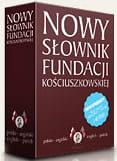 Mr. Herter also serves as a representative in the Warsaw office of the Kosciuszko Foundation. In this capacity, he has provided the PMC with the DVD version of the new Kosciuszko Foundation Dictionary. This excellent and up-to-date dictionary is available in print, DVD, and electronic form at www.kosciuszkowski.org.
Mr. Herter also serves as a representative in the Warsaw office of the Kosciuszko Foundation. In this capacity, he has provided the PMC with the DVD version of the new Kosciuszko Foundation Dictionary. This excellent and up-to-date dictionary is available in print, DVD, and electronic form at www.kosciuszkowski.org.
News
Schaeffer World Premiere
The world premiere of Bogusław Schaeffer’s String Quartet no. 17 took place on July 19 at the Abby Aldrich Rockefeller Sculpture Garden in the Museum of Modern Art In New York City. The concert was part of the Summergarden 2009 concert cycle and was made possible by the support of the Polish Cultural Institute NY. The premiere of Schaeffer’s String Quartet, which was written in 2006, fits nicely into the celebrations of the 80th birthday of the composer. On the program are also works by Jorg Widmann, David Flynn (both Western Hemisphere premieres), and Daniel Bernard Roumain (New York premiere). Performers were David Fulmer and Arthur Moeller, violins; Jen Herman, viola; Elizabeth Lara, cello.
 Boguslaw Schaeffer, born 1929 in Lwów (now in Ukraine) – a composer, theorist, music critic, pedagogue, playwright, and graphic artist – is not only a leading representative of the European musical avant-garde, with over 500 compositions in a variety of genres, but also happens to be the most frequently presented among living Polish playwrights, with over forty plays performed. Gifted with an exceptional facility for understanding the future of the arts, Schaeffer has become a highly versatile creator. His theater, guided by the laws of music, has so far found no equivalent in literature; it both captivates and fills one with wonder at its innovative originality. His achievements in music are based on a thorough attempt to exploit its possibilities, not through some short-lived innovation but through the organization of a whole new world, by discovering unknown forms, techniques, and means of expression. Placing the idea in the foreground, the composer works with unusual efficacy in creating the music itself, its substance, its laws, its aesthetic. Schaeffer is one of the most interesting figures in the development of European culture in recent decades. He creates music of all kinds, from symphonic, chamber and solo, through sacred music and jazz, to music dramas and electro-acoustic compositions.
Boguslaw Schaeffer, born 1929 in Lwów (now in Ukraine) – a composer, theorist, music critic, pedagogue, playwright, and graphic artist – is not only a leading representative of the European musical avant-garde, with over 500 compositions in a variety of genres, but also happens to be the most frequently presented among living Polish playwrights, with over forty plays performed. Gifted with an exceptional facility for understanding the future of the arts, Schaeffer has become a highly versatile creator. His theater, guided by the laws of music, has so far found no equivalent in literature; it both captivates and fills one with wonder at its innovative originality. His achievements in music are based on a thorough attempt to exploit its possibilities, not through some short-lived innovation but through the organization of a whole new world, by discovering unknown forms, techniques, and means of expression. Placing the idea in the foreground, the composer works with unusual efficacy in creating the music itself, its substance, its laws, its aesthetic. Schaeffer is one of the most interesting figures in the development of European culture in recent decades. He creates music of all kinds, from symphonic, chamber and solo, through sacred music and jazz, to music dramas and electro-acoustic compositions.
In cooperation with the Juilliard School and Jazz at Lincoln Center, the Museum of Modern Art has been organizing jazz and contemporary concerts in the Summergardenseries for several years now. Young virtuosos from the New Juilliard Ensemble, directed by Joel Sachs, perform new chamber compositions by composers from around the world, which have not been performed in New York before.
[Sources: Polish Cultural Inst. NY, Polish Music Information Ctr.]
Public Media Bill Debate
![]()
![]() The new Media Bill, which was passed by the Polish Parliament [Sejm] but vetoed by President Kaczyński, has become the source of much debate in artistic circles in Poland and abroad. Some of the main points of discussion include the issues of funding and political independence for the public media outlets, Polish Radio [Polskie Radio] and Television [TVP].
The new Media Bill, which was passed by the Polish Parliament [Sejm] but vetoed by President Kaczyński, has become the source of much debate in artistic circles in Poland and abroad. Some of the main points of discussion include the issues of funding and political independence for the public media outlets, Polish Radio [Polskie Radio] and Television [TVP].
In its current form, the bill removes the annual license fee that every user of public media is required to pay, which is the main source of funding for public media. In its place, funding would be provided by the allocation of a governmental budget decided upon during parliamentary budget sessions. According to numerous voices in artistic circles, this will lead to the slow death of channels dedicated to high art, and provide tools for political pressure on station programming.
One of the institutions most endangered by underfunding is Polish Radio Channel 2. This channel has limited possibilities for outside income, due to its specialized programming, but at the same time it provides high art, including music, theatre, and prose, to about 90% of Poland’s territories. It is the most important, and often the only, source of such material for many households in Poland.
Rzecznik Praw Obywatelskich [Citizen’s Rights Representative] Janusz Kochanowski has also strongly opposed the bill. In an interview for Polish Radio, Kochanowski said that, in its current form, “…the bill cannot stand because, for Public TV and Radio to fulfill their missions, they have to be free of political pressure, and such pressure is easiest to apply through financial restrictions.” Furthermore, Kochanowski said that if the presidential veto gets overturned by the Parliament, which is highly unlikely since this would require 2/3 of the votes of the representatives, he will sue the bill at the Constitution Tribunal.
In a meeting with numerous artists, president Lech Kaczyński discussed possible solutions to the issues brought forth by the introduction of the media bill. Many artists expressed the need for a complete rewrite of the bill and the president has not ruled out the possibility of the development of a new bill under his supervision and patronage.
The text of the latest revision of the bill is available on the KIPA website. KIPA is the acronym for Krajowa Izba Producentów Audiowizualnych, or the National Chamber of the Audio-Visual Producers, and their website is actively reporting on issues concerning the bill.
Concerned artists have also created an online petition opposing the bill which can be viewed and signed at www.dwojka-popieram.org.pl. To date, there are over 5,500 signatures and the list is growing daily.
[Sources: audiowizualni.pl, polskieradio.pl, rmf.fm, news.money.pl, wiadomosci.onet.pl, wirtualnemedia.pl, wiadomosci.wp.pl, ustawamedialna.pl]
Polish Renaissance Premiere
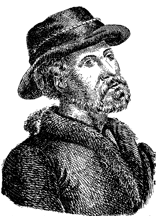 Sebastian Klonowic, an outstanding poet of the Polish renaissance, was known mostly for his works dedicated to Kochanowski and a poem entitled Flis. It has now been discovered that he is also the author and composer of seven songs, two psalms and a Mass for the time of plague. The song cycle, titled Hebdomas, describes the seven days of the creation of the world and are written in four parts. They are kept in a simple style and use the harmonic language of the late renaissance, targeting a wide range of performers and listeners. The compositions were discovered in Lublin in 2002 as part of the first edition publication from 1581 by Garwolczyk officinal in Kraków.
Sebastian Klonowic, an outstanding poet of the Polish renaissance, was known mostly for his works dedicated to Kochanowski and a poem entitled Flis. It has now been discovered that he is also the author and composer of seven songs, two psalms and a Mass for the time of plague. The song cycle, titled Hebdomas, describes the seven days of the creation of the world and are written in four parts. They are kept in a simple style and use the harmonic language of the late renaissance, targeting a wide range of performers and listeners. The compositions were discovered in Lublin in 2002 as part of the first edition publication from 1581 by Garwolczyk officinal in Kraków.
The world premiere of Hebdomas took place on July 4, 2009 at the XXXI Festival of the Early Music in Stary Sącz. The first performance in Warsaw took place at the Wilanów Castle on July 12. The works were performed by the Ars Nova Ensemble and Subtilior Ensemble directed by Jacek Urbaniak. There are plans for a recording of the compositions to be published with a book in 2010. [Polish text by Jacek Urbaniak, 6 July 2009, paraphrased transl. by Daniel Kamiński]
[Source: polmic.com]
LAJS Presents Szpilman & Fitelberg
 On Sunday, August 9th at 7:30 pm, the Los Angeles Jewish Symphony will present a concert entitled “L’Chayim! (To Life!): A Musical Celebration of Eastern European Culture,” to showcase music and songs that have their roots in Russia, Poland, and other central and eastern European countries. The first half of the program will include a performance of Wladisław Szpilman’s Piano Concertino, written while he was interned in the Warsaw Ghetto and featured in the Academy-Award winning film The Pianist. As part of the LAJS’s artistic vision to provide opportunities for young musicians to perform at a concert, the Concertino will be played by a young and upcoming pianist, Yevgeniy Milyavskiy. The repertoire will also include the music of Grzegorz Fitelberg (1879-1953), legendary composer and conductor. Fitelberg was internationally known as the “Ambassador of Polish Music.” The life of this maestro was dedicated to promoting and propagating Polish art, culture, and music worldwide. Clarinetist, Zinovy Goro,will be the guest artist.
On Sunday, August 9th at 7:30 pm, the Los Angeles Jewish Symphony will present a concert entitled “L’Chayim! (To Life!): A Musical Celebration of Eastern European Culture,” to showcase music and songs that have their roots in Russia, Poland, and other central and eastern European countries. The first half of the program will include a performance of Wladisław Szpilman’s Piano Concertino, written while he was interned in the Warsaw Ghetto and featured in the Academy-Award winning film The Pianist. As part of the LAJS’s artistic vision to provide opportunities for young musicians to perform at a concert, the Concertino will be played by a young and upcoming pianist, Yevgeniy Milyavskiy. The repertoire will also include the music of Grzegorz Fitelberg (1879-1953), legendary composer and conductor. Fitelberg was internationally known as the “Ambassador of Polish Music.” The life of this maestro was dedicated to promoting and propagating Polish art, culture, and music worldwide. Clarinetist, Zinovy Goro,will be the guest artist.
The first half of the concert will also include the piece The Fiddler, which is based on a Yiddish tale by author Shalom Aleichem. The composition by American composer Elliot Finkel, for violin, narrator and orchestra, will feature concertmaster Mark Kashper (originally from Russia) on violin, and all-around entertainer Mike Burstyn. The second half of the program will feature Broadway and international star, Mike Burstyn, who has entertained audiences on stage, screen and television and in nightclubs throughout the world. His participation will be representative of the world-wide efforts to promote the survival of the endangered legacy of Yiddish language, culture and history.
Chopin Year Preparations
 On July 15, the Polish Minister of Culture and National Heritage, Bogdan Zdrojewski, participated in a press conference regarding the planned investments in preparation for the Chopin Year 2010. The meeting took place in the Ostrogski Castle in Warsaw. Also in attendance were: Ewa Bara, Assistant Director of the National Frederic Chopin Institute in Warsaw, and Alicja Knast, curator of the Frederic Chopin Museum in Warsaw.
On July 15, the Polish Minister of Culture and National Heritage, Bogdan Zdrojewski, participated in a press conference regarding the planned investments in preparation for the Chopin Year 2010. The meeting took place in the Ostrogski Castle in Warsaw. Also in attendance were: Ewa Bara, Assistant Director of the National Frederic Chopin Institute in Warsaw, and Alicja Knast, curator of the Frederic Chopin Museum in Warsaw.
The conference focused on investment plans for the estates directly connected to the life and work of Frederic Chopin. One of the institutions in question is the Frederic Chopin Museum. Housed for years housed in the Ostrogski Castle, it is currently being renovated and made into a modern museum and education facility, which should fill the needs of Polish and international visitors.
 A Chopin Center, a modern information source about the composer, has been created near the museum where the publications of NIFC as well as tourist information will be readily available. Several Chopin-related institutions will be housed there as well as the library, record collection and bookstore. The building should be ready in September 2009.
A Chopin Center, a modern information source about the composer, has been created near the museum where the publications of NIFC as well as tourist information will be readily available. Several Chopin-related institutions will be housed there as well as the library, record collection and bookstore. The building should be ready in September 2009.
Of special importance in the plans are the two places that are most associated with the composer. The Żelazowa Wola Manor, birthplace of Chopin, will be turned into an attractive and functional museum and tourist complex. The work on the project started back in August 2008 and should be finished by December 2009. At the same time renovations are on the way in Brochów, the settlement where Chopin was christened. The local Basilica is under renovation, the historical park is revitalized, and the park manor is being rebuilt.
Because of the great value of these Chopin investments and their special merit for Poles and international circles, the Ministry of Culture and National Heritage has appropriated over 128 mil PLN (ca.$40 mil. USD) for the purpose of preparing for the Chopin Year 2010.
[Source: mkidn.gov.pl (direct translation)]
Sinfonia Varsovia With Bocelli
 Andrea Bocelli, one of the most recognized and commercially successful tenors in the world, will perform a concert in Poland at the Gwardia Stadium in Warsaw. Bocelli will be accompanied by Warsaw’s Sinfonia Varsovia orchestra, a great honor for the ensemble.
Andrea Bocelli, one of the most recognized and commercially successful tenors in the world, will perform a concert in Poland at the Gwardia Stadium in Warsaw. Bocelli will be accompanied by Warsaw’s Sinfonia Varsovia orchestra, a great honor for the ensemble.
Concert organizers are providing 10,000 seats, top notch sound equipment, and several enormous screens for a complete and highest quality concert experience. The preparations of the Gwardia Stadium will take five days, the equipment will be brought in by 12 semis, and the sound system was specifically designed in Italy to assure the maximum possible sound quality for the whole stadium.
The tickets range from 175 PLN for standing room to 750 PLN for the VIP section (ca. $55-$250 USD). For more information, please visit the official website of the producers of the concert at makroconcert.com
[Source: muzyka.onet.pl]
Anderszewski At Mostly Mozart
Pianist Piotr Anderszewski will perform 3 times during the Mostly Mozart Festival at New York’s Lincoln Center. He will give an all-Bach recital (7/29) and will perform Mozart’s Piano Concerto No.18 twice with Edward Gardner and the Mostly Mozart Festival Orchestra (7/31 and 8/1). The Festival will also feature the U.S. premiere screening of Unquiet Traveller (2009), a documentary filmed by legendary director Bruno Monsaingeon that provides a glimpse into the musical identity of this intriguing pianist. The screening will be introduced by Monsaingeon and followed by a discussion with Anderszewski. Details for all events are below.
Wednesday, July 29 at 10:30pm
A Little Night Music: Piotr Anderszewski
Stanley H. Kaplan Penthouse
All-Bach Program: Partita No.6 in E minor & English Suite No.6 in D minor
Friday, July 31 at 8:00pm & Saturday, August 1 at 8:00pm
Mostly Mozart Festival Orchestra – Edward Gardner, conductor & Piotr Anderszewski, piano
Avery Fisher Hall
Program includes: Mozart – Piano Concerto No.18 in B-flat major, K.456
Saturday, August 1 at 2:00pm
Film screening: Unquiet Traveller (U.S. Premiere)
Walter Reade Theater
Introduction by director Bruno Monsaingeon and post-screening discussion with Piotr Anderszewski
More information and tickets are available on the Lincoln Center website, lincolncenter.org.
[Source: Polish Cultural Inst. NY]
Dudkiewicz In US
Nineteen year old guitarist Mikołaj Dudkiewicz was born in Lublin, Poland and began his musical studies at the age of seven. For the past twelve years he has studied under Kazimierz Szczebel, the artistic director of the International Guitar Festival held annually since 1985 in Lublin. The winner of numerous awards and guitar competitions, Mikołaj has taken master classes with many noted European and American classical guitarists, and has performed in Germany and Lithuania, as well as Poland. During the month of August he will be giving his first American tour. The known tour dates are below:
 August 2nd @ 2:00 p.m.
August 2nd @ 2:00 p.m.
Wisconsin Polish Center
6941 S. 68th St., Franklin, WI
(414) 529-2140
August 15th & 16th, multiple performances
Twin Cities Polish Festival
55 Main St SE, Minneapolis, MN
information@tcpolishfestival.org
August 23rd @ 1:30 p.m.
Polish Club of San Francisco
3040 22nd St., S.F., CA
(415) 821-2574
Polish Singers Abound In NY
In an article entitled “Bumper season for Polish opera singers,” the Polskie Radio news service continues a story line introduced in our May 2008 Newsletter, regarding the large number of Polish opera singers onstage during the 2008-2009 Metropolitan Opera season. This is the first time Polish artists have been featured at New York City’s Met since the 1980s. The five singers were: tenor Piotr Beczala, baritone Mariusz Kwiecien, contralto Ewa Podleś, soprano Aleksandra Kurzak, and baritone Andrzej Dobber (pictured above, L to R).
To read the entire article, visit www.polskieradio.pl.
Awards
Opus And Cogito Awards In Trouble
 Polish Radio and Polish Television have announced that they will not fund the prize for the winners of either the Cogito or Opus awards this year. These awards, for literature and music respectively, are funded by Polish Public Media, but because of the dramatic financial situation of these public media institutions, they simply cannot afford to spend 400,000 PLN (ca. $130,000 USD) needed for the main prizes of the competition.
Polish Radio and Polish Television have announced that they will not fund the prize for the winners of either the Cogito or Opus awards this year. These awards, for literature and music respectively, are funded by Polish Public Media, but because of the dramatic financial situation of these public media institutions, they simply cannot afford to spend 400,000 PLN (ca. $130,000 USD) needed for the main prizes of the competition.
The announcement of the Polish TV and Radio backing out of the competition came shortly after the jury announced the finalists. The finalists for the Opus Award (music category) are:
- Magdalena Długosz for Outside the Silence for tape
- Aleksandra Gryka for Youmec for harpsichord and tape
- Paweł Hendrich for Metasolidus for symphonic orchestra
- Justyna Kowalska for Obraz 1929 (Zdzisław Beksiński in memoriam) for symphonic orchestra
- Hanna Kulenty for String Quartet no. 4 (A Cradle Song)
- Aleksander Lasoń for Called Back. Sacrificial Chanting and Playing to ANNA for solo voices and string orchestra
- Paweł Mykietyn for St. Mark’s Passion
According to the jury of the Opus Award—consisting of Włodzimierz Kotoński, Andrzej Chłopecki, Krzysztof Droba, Marek Moś, Olgierd Pisarenko, Krzysztof Szwajgier and Paweł Szymański—on June 17 the winner of the competition was chosen and was supposed to be announced during a gala in September. This information counters the announcement made by Polish Radio and TV, which implied that the competition is not concluded and therefore there is no need for the payout. Since the jury has concluded their voting and the winner was chosen, Polish Radio and TV are required to provide the prize as stated in the regulations. You can read the statement of the members of the jury at wyborcza.pl.
On July 28, chairmen of five of the largest Polish artistic associations have sent a signed letter strongly opposing the controversial decision made by Polish TV and Polish Radio and commenting on the faulty distribution of funding in these institutions. The letter was signed by Jerzy Kornowicz (Chairman of the Polish Composer’s Union, ZKP), Adam Pomorski (Vice-Chairman of the Polish PEN Club), Krzysztof Sadowski (Chairman of the Polish Jazz Society), Sergiusz Sterna-Wachowiak (Chairman of the Polish Writers’ Society) and Antoni Wicherek (Chairman of the Society of Polish Artist Musicians). Some of the comments are available at muzyka.onet.pl.
[Sources: nagrody-mediow-publicznych.pl, wyborcza.pl, wyborcza.pl. muzyka.onet.pl]
Annual ZKP Awards
 The board of the Polish Composers’ Union (ZKP) has announced the recipients of the annual award. This year the award was given to:
The board of the Polish Composers’ Union (ZKP) has announced the recipients of the annual award. This year the award was given to:
- Elżbieta Chojnacka – for lifetime of performance activity, for promotion of contemporary music with emphasis on Polish music, for development of contemporary harpsichord performance techniques, and for inspiration and stimulation of the contemporary harpsichord literature.
- Mieczysław Kominek – for great achievements in development of the Polish Music Information Center in Warsaw and for lifetime achievement in promotion of Polish culture, including: working for Polish Radio, establishing Studio – the first Polish record magazine, developing music appreciation publications, and music journalism.
The awards ceremony will take place during the 52nd Warszawska Jesień [Warsaw Autumn] Festival in September.
[Source: zkp.org.pl]
Sinfonia Varsovia Stipend
 On June 12th, the Sinfonia Varsovia orchestra announced the winners of the Franciszek Wybrańczyk Stipend funded by Sinfonia Varsovia and Polservice. The award was given to Marianna Bednarska (pictured at right), a percussionist from Music School no. 4 in Warsaw and a student of prof. Henryk Mikołajczyk. The additional award, funded by the chairman of the Sinfonia Varsovia Foundation, was awarded to Ewa Harasimiuk, a trombone player from the Music School no. 4 in Warsaw and student of prof. Krzysztof Wojtyniak.
On June 12th, the Sinfonia Varsovia orchestra announced the winners of the Franciszek Wybrańczyk Stipend funded by Sinfonia Varsovia and Polservice. The award was given to Marianna Bednarska (pictured at right), a percussionist from Music School no. 4 in Warsaw and a student of prof. Henryk Mikołajczyk. The additional award, funded by the chairman of the Sinfonia Varsovia Foundation, was awarded to Ewa Harasimiuk, a trombone player from the Music School no. 4 in Warsaw and student of prof. Krzysztof Wojtyniak.
The prizes are 10,000 PLN (ca. $3,300 USD) and a performance with Sinfonia Varsovia during the Sinfonia Varsovia Festival in August for Marianna Bednarska. Ewa Harasimiuk has received a monetary prize of 5,000 PLN (ca. $1,600 USD).
[Source: sinfoniavarsovia.org]
Polish Artists On PPL List
The recording of Henryk Mikołaj Górecki’s Three Pieces in the Old Style by Agnieszka Duczmal and the Amadeus Polish Radio Chamber Orchestra was ranked no. 2 on the PPL list of “UK’s classical favorites 2008.” Krystian Zimmerman’s recording of Grieg’s Piano Concerto is also among the top 20 ranking recordings, at no. 10. Other artists included in the list are Martha Argerich, Neville Marriner, Valery Gergiev and Nigel Kennedy.
This ranking of the 20 most popular classical recordings in the UK was announced by Phonographic Performance Limited (PPL), a London based licensing company for radio and television broadcasters, both private- and state-owned. PPL has just celebrated its 75th anniversary.
 Agnieszka Duczmal is the founder, the exclusive conductor and art director of the Amadeus Polish Radio Chamber Orchestra, and also the first woman conductor to perform in the famous La Scala in Milan. When she was still a student she founded the Chamber Orchestra (1968) later transformed into the Chamber Orchestra of the Polish Radio and Television (1977), and then into the Chamber Orchestra of the Polish Radio “Amadeus” (1988) with which she has been visiting the most famous concert halls in the world, making many recordings: over 8000 minutes of music recorded for the Polish Radio and Television, WDR, NDR, BBC and the French and Mexican Television, hosting excellent soloists and promoting young talent.
Agnieszka Duczmal is the founder, the exclusive conductor and art director of the Amadeus Polish Radio Chamber Orchestra, and also the first woman conductor to perform in the famous La Scala in Milan. When she was still a student she founded the Chamber Orchestra (1968) later transformed into the Chamber Orchestra of the Polish Radio and Television (1977), and then into the Chamber Orchestra of the Polish Radio “Amadeus” (1988) with which she has been visiting the most famous concert halls in the world, making many recordings: over 8000 minutes of music recorded for the Polish Radio and Television, WDR, NDR, BBC and the French and Mexican Television, hosting excellent soloists and promoting young talent.
[Source: polmic.com, polskieradio.pl]
Gaude Polonia Program
“Gaude Polonia,” a stipend program of the Polish Minister of Culture and National Heritage, was created in 2003 and is designed for young artists from central-Eastern Europe, especially Belarus and Ukraine. The program is open to musicians, visual artists, museum curators, film artists, translators, art historians and film, theater critics. Each year, up to 40 artists are accepted to take part in the program. (See a full description here: www.mobility-matters.eu)
“Gaude Polonia” is organized by Poland’s National Cultural Center. Stipend winners stay and work in Poland for half a year, during which time they complete specified projects under the supervision of renowned Polish artists and experts.
On July 20th, Minister of Culture and National Heritage, Bogdan Zdrojewski, awarded diplomas to the participants of the 8th edition of the Gaude Polonia program. Among the participants were the following musicians:
- Iryna Błochina (Ukraine) – composition; tutor: prof. Zygmunt Krauze
- Denys Hryniow (Ukraine) – music; tutor: prof. Tomasz Miczka
- Witalij Iwanow (Ukraine) – jazz; tutor: prof. Jerzy Jarosik
- Kirył Keduk (Belarus) – music, self designed project
- Viktor Kisten (Belarus) – sound engineering; tutor: Lech Dudzik
- Marta Kuzij (Ukraine) – music; tutor: prof. Andrzej Jasiński
- Ostap Mańko (Ukraine) – music; tutor: prof. Jadwiga Kaliszewska
- Piotr Paulau (Belarus) – music; self designed project
- Ołena Sierowa (Ukraine) – music; tutor: prof. Zbigniew Bujarski
- Dmytro Szczyrycia (Ukraine) – music; tutor: prof. Aleksander Lasoń
- Leonid Zajdel-Wolski (Belarus) – music; self designed project
For a complete list of participating artists please visit the Ministry of Culture and National Heritage (MKiDN) website.
[Text and photo source: mkidn.gov.pl]
Paderewski’s Piano in Vancouver, B.C.
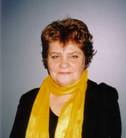 In 2001, Ms. Irena Gostomska found a piano in Vancouver that had once belonged to Ignacy Jan Paderewski and had been used during one of his North American concert tours. Thanks to her efforts and efforts of the members of “The Paderewski Heritage Committee” created shortly thereafter, as well as proceeds from concerts given by Polish artists, the piano was renovated.
In 2001, Ms. Irena Gostomska found a piano in Vancouver that had once belonged to Ignacy Jan Paderewski and had been used during one of his North American concert tours. Thanks to her efforts and efforts of the members of “The Paderewski Heritage Committee” created shortly thereafter, as well as proceeds from concerts given by Polish artists, the piano was renovated.
In 2008 Ms. Gostomska and the Polish Consulate in Vancouver organized a gala celebrating the 60th anniversary of the death of Ignacy Jan Paderewski at which the piano was presented by the Consul General of the Republic of Poland in Canada. A video from the event with narration in Polish is available at video.google.com; it features a short history of the instrument as well as footage of the renovation efforts.
For her efforts towards saving the instrument, and her activities in Canadian-Polish society, Ms. Gostomska has received the 2009 Golden Owl Award. This honor is awarded by Jupiter, a publication of the Polonia community in Austria. More information is available at the following links: wspolnota-polska.org.pl, polonia.pap.net.pl.
Discography
Sensational Recording Of Stojowski’s Violin Works
A Review by Joseph A. Herter
 Zygmunt Stojowski: Violin concerto – Romance – II Sonata
Zygmunt Stojowski: Violin concerto – Romance – II Sonata
Zygmunt Stojowski (1870-1946): Sonata for violin and piano No. 2 in E major Op. 37; Romance for violin and orchestra Op. 20; Concerto for violin and orchestra in G major Op. 22
Marucha Agnieszka, violin; Schmid Jean-Jacques, piano; Orkiestra PSM II st. im. J. Elsnera, Wajrak Piotr, conductor
Acte Préalable AP0221
Nothing but compliments and highest praise can be proffered to violinist Agnieszka Marucha for her stunning performances of Zygmunt Stojowski’s compositions for violin on a recording released by Acte Préalable in Poland (AP0221). A 2008 alumna of the Chopin Academy of Music in Warsaw who continued her studies her studies at the Schola Cantorum in Bern, Ms Marucha must be thanked for saving these works from oblivion and bringing them back to life.
Of the three works recorded, Stojowski’s Second Violin Sonata in E Major, Op. 37 stands out as the noblest, most original and masterfully crafted of the three. Marucha’s virtuosic performance succeeds in convincing the listener that they are indeed hearing a masterpiece. Her rich tone is so beautiful, her playing so musical and her cantabile so lyric that she can be easily described as the Maria Callas of the violin. When the sonata was first performed in the USA in 1912 by Polish violinist Arthur Argiewicz, critics hailed the work as “a valuable addition to the literature of violin music.” Now that we finally have a wonderful commercial recording of the work, may the sonata hold a prominent and permanent place in the violin repertoire. It is certain to be an eye-opener for violinists hearing it for the first time.
Sharing the limelight in this magnificent performance is the excellent Swiss-trained pianist Jean-Jacques Schmid. Together they recorded the Sonata in Bern. The quality of sound is superb on the Sonata, making it one of the most technically successful chamber music recordings released by Acte Préalable. Unfortunately, this is not the case with the two pieces accompanied by the student orchestra of the Elsner Music High School in Warsaw, conducted by Piotr Wajrak. Many times the soloist sounds as though she is playing in the orchestra instead of in front of it. In general, there is no presence of sound for the soloist in the two orchestral pieces.
The first of these pieces is the Romance for Violin and Orchestra, Op. 20, dedicated to violinist Jacques Thibaud. Both Stojowski and Thibaud were featured soloists during the first concert season of the Warsaw Philharmonic Orchestra in 1901-02. This piece was probably written as a musical souvenir to commemorate their meeting in Warsaw. A lovely six-minute piece, the work is an ideal composition for programming on an orchestral classical pops concert and a perfect vehicle for orchestras to feature their concertmaster in something short and sweet.
The Concerto in G, Op. 22, found last on the recording, is the least impressive of the works and performances found on the CD. Although the slow middle movement is exquisite, the outer movements of the concerto never really, so to speak, “make it.” Maybe the reason for this can be found in the piece’s lengthy dedication to Polish violinist/composer and soloist of the Lamoureux Orchestra in Paris, Władysław Górski. Stojowski thanks Górski for the help that he gave in writing the concerto. Could Górski have helped a bit too much? Also, even though Ms Marucha’s playing is technically correct in the Concerto, it lacks the bravura found in her brilliant performance of the Sonata.
Regarding the liner notes, an unfortunate number of mistakes can to be found. To mention only two examples, the author has listed Stojowski dying in the month of October, [Stojowski died in November], and the year of composition for the Romance is given as 1919 [the piece was composed in 1901]. Nonetheless, this world premiere recording of Stojowski’s violin works is a valuable and welcome addition to the ever increasing awareness and popularity of one of Poland’s most outstanding, but unjustly long forgotten, post-romantic composers—Zygmunt Stojowski (1870-1946).
 Joseph A. Herter is a graduate of the University of Michigan’s School of Music in Ann Arbor. After travelling to Poland on a Kosciuszko Foundation grant in 1974, he relocated there and is very active as a teacher and writer as well as a choral and orchestral conductor. Mr. Herter is the founder and conductor of Cantores Minores, the Warsaw Archdiocesan Cathedral Boys’ and Men’s Choir. He is a regular contributor to Polish and American musicological publications and the author of PMHS Vol. 10, Zygmunt Stojowski: Life and Music.
Joseph A. Herter is a graduate of the University of Michigan’s School of Music in Ann Arbor. After travelling to Poland on a Kosciuszko Foundation grant in 1974, he relocated there and is very active as a teacher and writer as well as a choral and orchestral conductor. Mr. Herter is the founder and conductor of Cantores Minores, the Warsaw Archdiocesan Cathedral Boys’ and Men’s Choir. He is a regular contributor to Polish and American musicological publications and the author of PMHS Vol. 10, Zygmunt Stojowski: Life and Music.
Review Of Levity
By Daniel Kamiński
 Levity
Levity
Levity trio: original compositions
Jacek Kita – piano; Piotr Domagalski – upright bass; Jerzy Rogiewicz – drums
LACDABC
“Levity is a piano-bass-drums entity living on the edge of contemporary improvised music and avant-pop. They perform in concert halls, clubs and theaters, feeding on all available music genres, preferring some to others. Levity handles neurotic, violently changing climates well. Due to its unique character it is currently under preservation.” – ‘About Levity’ from MySpace (transl. by D. Kamiński)
The above statement, penned by the band, is the best description one could find for this unique ensemble. Their self titled debut CD is an exhibition of musical versatility and stylistic variety, yet it avoids being a hodge-podge of random ideas thrown together just for the sake of experimentation. Each of the nine compositions is an intimate journey, sometimes gentle and serene and other times violent and rough.
It would not be true to call Levity an avant-garde jazz trio. Their compositions are formally constructed and the musical themes clearly stated. The improvised passages stay within the realm of neo-bop/fusion. But on the other hand they are not afraid to mix and match styles to their liking. A great example is the second track on the CD. “Yakuza”starts off with a strong, clearly punk rock influenced groove in 3/4 time—it’s unusual, loud and imposing. After a few moments, though, it settles down and the main theme, which is strongly chromatic and relatively sparse, is uncovered. The track starts building back up from there, never losing energy and continuously keeping the listener engaged.
Other highlights of the CD include “Rotwang,” a sublime ballad in a 7/4 bolero style, with beautifully restrained solos and intriguing melodies, accompanied by tasteful hand drumming. “Deliverance” is the tune that gets the closest to traditional be-bop music, without ever actually being be-bop. Hard riding cymbal and bass playing underlines a very sparse, ballad theme, creating a clash of sorts. The track picks up the pace during solos and becomes very driving and exciting. “Needless to Say” has a strong ‘drum and bass’ influence, very fast, dense, and syncopated. Combine this with a theme that Schoenberg would not have been ashamed to use and you get the picture of what the band is trying to achieve. One of my favorites is the closing track, “Noe.” It serves as a sort of postlude to the turbulent ride of the album. The track is a very restrained ballad, with lots of air and a slight free-jazz vibe, giving it an almost mystical quality—perfect for unwinding after eight tracks of highly unique material.
Levity is a young group, and they are keen on experimentation and assimilation. They blend different, some would say unlikely, styles together very smoothly, creating engaging and exciting music to which, at times, it is not very easy to listen. This is not a CD of elevator music. This is a CD for an active listener who can appreciate a variety of influences reaching as far as Chick Corea or Uri Caine, Nirvana, and Schoenberg or Penderecki. This classical influence is most likely thanks to the two members—Kita and Rogiewicz—who hold composition degrees from the Kraków Music Academy. Levity’s first CD carries the promise of a great future for these outstanding musicians and I hope to hear more of their work in the near future.
To learn more about the Levity trio and hear some samples of the CD, please visit their MySpace page. The CD is available for purchase in several Polish internet stores, for example rockserwis.pl.
 Daniel Kaminski holds a doctorate in percussion performance from the USC Thornton School of Music. He is an active freelance musician in the Los Angeles area classical, pop, and jazz. He serves as project assistant and newsletter assistant editor for the Polish Music Center at USC.
Daniel Kaminski holds a doctorate in percussion performance from the USC Thornton School of Music. He is an active freelance musician in the Los Angeles area classical, pop, and jazz. He serves as project assistant and newsletter assistant editor for the Polish Music Center at USC.
More Bacewicz/Kurkowicz On Chandos
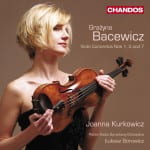 Grażyna Bacewicz: Violin Concertos 1, 3 & 7
Grażyna Bacewicz: Violin Concertos 1, 3 & 7
Grażyna Bacewicz (1909-1969): Concerto No. 7 for Violin and Orchestra (1965), Concerto No. 3 for Violin and Orchestra (1948), Concerto No. 1 for Violin and Orchestra (1937), Overture (1943)
Joanna Kurkowicz, violin; Polish Radio Symphony Orchestra; and Łukasz Borowicz conductor.
Chandos 10533
This recording was made in the Witold Lutoslawski Concerto Studio of Polish Radio, Warsaw, between 21-24 October 2008 and 2-6 February 2009 and released on July 1, 2009, in honor of this year’s 100th anniversary’s of Bacewicz’s birth. According to the Chandos website, Polish violinist Joanna Kurkowicz has this to say about the project and the composer:
For me personally, this recording project is a celebration of a supremely talented composer… My sincere hope is that generations of violinists, teachers and critics will be attracted to Grazyna Bacewicz’s oeuvre – especially the violin concertos – and that the quality and originality of Bacewicz’s works will secure them the acclaim they so richly deserve, and their rightful place among the masterpieces of the repertoire…. The idea of the present recording, of bringing together Violin Concertos Nos 1, 3 and 7, came to me after the simple realisation that these fabulous works for violin belong among the masterpieces of the violin repertoire…Written by a violinist who knew the technical challenges of the instrument, these works are indeed difficult. But at the same time they seem natural and convey musical ideas with absolute clarity… [Bacewicz’s] choices of sonorities, articulations, tempos – even fingerings – in the musical text suggest a deep understanding of the instrument, which draws me even closer to [the] music.
Kurkowicz has also made a recording of Bacewicz’s Sonatas, Oberek, Partita, and Two Capriccios for Chandos (10250). Regarding these recordings, Gramophone Magazine said “This is music which demands disciplined virtuosity, such as Joanna Kurkowicz has in spades,” while American Record Guide commented, “Lovers of fiddle music really can’t have too much of Grazyna Bacewicz.”
[Sources: Chandos, www.polskieradio.pl]
Music For Dance
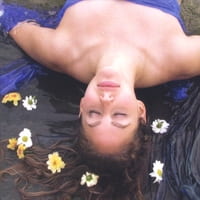 Na Razie, bez Ciebie
Na Razie, bez Ciebie
Christian Matjias (b.1963): Joasia; Zawiodlem Cie, Moj Aniele; Zly Wybor, Zmarnowane Zycie; Opuszczam Niebo; Wiecznosc Bez Twego Pocalunku; Kazdy Oddech, Kazde Spojrzenie; Kazda Nuta – Wszystko Z Mysla O Tobie; Wciaz Cie Kocham; Od Pierwszych Naszych Chwil; Moja Dusza i Mysli Naleza Do Ciebie; Na Zawsze; Na Razie, Bez Ciebie, I-IV; Variationen Zur Gesundung Von Arinuschka
Christian Matjias, piano
cdbaby.com
Pianist and composer Christian Matjias is a graduate of the USC Thornton School of Music Harpsichord and Early Music Performance programs (B.A. & M.M.). Currently he serves as Professor of Dance and Music and a faculty associate of the Center for Russian & East European Studies (CREES) at the University of Michigan. A large part of Matjias’s recorded output is music intended to be paired with dance, and his newest release, Na Razie, bez Ciebie, is no exception. In a solo piano performance with the occasional help from cello, vocals, and electronic enhancement, Matjias’s performance evokes a very personal relationship with the listener. His sweeping works for piano create a tone that is impassioned and evocative as well as melancholy.
New from DUX
 Piano Preludes
Piano Preludes
Wojciech Kilar: Three Preludes; Kazimierz Serocki: Suite of Preludes; Zygmunt Mycielski: Six Preludes; Mikołaj Górecki: Four Preludes Op. 1; Miłosz Magin: Five Preludes; Krzysztof Knittel: Four Preludes; Paweł Mykietyn: Four Preludes
Magdalena Prejsnar – piano
DUX0699
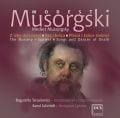 Modest Musorgski
Modest Musorgski
Modest Musorgski: From the Child’s Room; Without Sun; Songs and Dances of Death
Karol Schmidt – piano, Bogumiła Tarasiewicz – mezzo-soprano
DUX0602
 …of the 100th anniversary: birthday Grażyna Bacewicz and death Mieczysław Karłowicz
…of the 100th anniversary: birthday Grażyna Bacewicz and death Mieczysław Karłowicz
Grażyna Bacewicz: 3rd Violin Concert “Highland”; Mieczysław Karłowicz: Odwieczne pieśni symphonic poem
Krzysztof Jakowicz – violin; Białystok Philharmonic and Opera Orchestra; Marcin Nałęcz-Niesołowski – conductor
DUX0685
 Alexander Tansman – Works for cello and piano
Alexander Tansman – Works for cello and piano
Alexander Tansman: Deux pieces pour violoncelle et piano; Sonate No. 2 pour violoncelle et piano; Fantaisie pour violoncelle avec orchestre ou piano; Partita pour violoncelle et piano; Quatre pieces faciles pour violoncelle et piano
Jan Kalinowski – cello; Marek Szlezer – piano
DUX0697
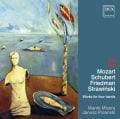 Works for four hands
Works for four hands
Wolfgang Amadeus Mozart: Sonata in D Major KV.381; Franz Schubert: Fantasy in F Minor for four hands op. 103 D. 940; Ignacy Friedman: 5 Waltzes; Igor Stravinsky: Cinq Pieces faciles
Marek Mizera – piano; Janusz Polański – piano
DUX0702
 Quattrocorno
Quattrocorno
Friedrich D. Weber: Quarteto no. 1; Gioacchino Rossini: Prelude, Theme and Variations (arr. A. Szebesczyk); Robert Schumann: Adagio and Allegro Op. 70; Andrzej Nikodemowicz/Nicolai Rimsky Korsakov: Notturno; Lowell E. Shaw: Frippery no. 1, 2, 3 & 4; Karl Jenkins: Chorales no. 1 & 3; Annibale Bucchi: Improvviso
Aleksabder Szebasczyk – French horn
DUX0706
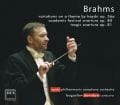 Johannes Brahms. Symphonic Works
Johannes Brahms. Symphonic Works
Johannes Brahms: Variations on a theme of Haydn op. 56a; Academic Overture op. 80; Tragic Overture op. 81
Opole Philharmonic Symphony Orchestra; Bogusław Dawidow – conductor
DUX0569
Performances
Kurkowicz Plays Premieres
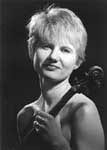 On May 1st, 2009, violinist Joanna Kurkowicz premiered new works for violin and piano written for her by composers from Tufts University, where she is also on the faculty. The program included compositions by Hahn, Stallings, Tierney, Toscano, Faris and the premiere of John McDonald’s work Airy. The concert took place at the Granoff Center at Tufts University.
On May 1st, 2009, violinist Joanna Kurkowicz premiered new works for violin and piano written for her by composers from Tufts University, where she is also on the faculty. The program included compositions by Hahn, Stallings, Tierney, Toscano, Faris and the premiere of John McDonald’s work Airy. The concert took place at the Granoff Center at Tufts University.
A native of Lublin, Poland, Joanna Kurkowicz began to study violin under the tutelage of Franciszek Falger. She earned a Master of Music Degree with distinction from the Paderewski Conservatory of Music in Poznań, Poland, in the studio of Jadwiga Kaliszewska. She came to the United States in 1992 to complete a second Master of Music degree as a student and teaching assistant of Charles Treger at the University of Massachusetts, Amherst. Ms. Kurkowicz completed the prestigious Artist Diploma program at the New England Conservatory of Music where she studied with Masuko Ushioda. Joanna Kurkowicz plays on a Petrus Guarnerius violin dated from 1699.
Sobieska In Bulgaria
 In June, soprano Dorota Sobieska sang in Bulgaria with the Pazardzhik Symphony Orchestra under Grigor Palikarov. Over the course of four arias by Donizetti, she hit a brilliant high G and brought the house down. A video of this performance is available at www.cleveland.com.
In June, soprano Dorota Sobieska sang in Bulgaria with the Pazardzhik Symphony Orchestra under Grigor Palikarov. Over the course of four arias by Donizetti, she hit a brilliant high G and brought the house down. A video of this performance is available at www.cleveland.com.
Dorota Sobieska and Jacek Sobieski are the co-founders of Opera Circle in Cleveland, OH. Since its founding in 1995, Opera Circle has produced twenty-seven operas in Italian, German, Polish, and English, with English text projected on a screen during the performance
Dorota Sobieska with tenor Piotr Beczala in 2008
Wagner In Sopot
 2009 marks the 100th anniversary for Opera Leśna [Forest Opera] in Sopot, formerly known as the “Waldoper Zoppot.” The forest amphitheatre was built to provide entertainment for people vacationing in Sopot, a popular seaside destination. In the 1920’s the opera company staged several works of Richard Wagner, among them The Nibelung’s Ring. In honor of this year’s anniversary, organizers have created the New International Sopot Wagner Festival, a re-start of the former Wagner festival held at Sopot until 1944, which was considered the “Bayreuth of the North.”
2009 marks the 100th anniversary for Opera Leśna [Forest Opera] in Sopot, formerly known as the “Waldoper Zoppot.” The forest amphitheatre was built to provide entertainment for people vacationing in Sopot, a popular seaside destination. In the 1920’s the opera company staged several works of Richard Wagner, among them The Nibelung’s Ring. In honor of this year’s anniversary, organizers have created the New International Sopot Wagner Festival, a re-start of the former Wagner festival held at Sopot until 1944, which was considered the “Bayreuth of the North.”
Celebrations were kicked off on July 20 with a concert version performance of Das Reingold,the first of the four parts of Wagner’s Nibelung’s Ring. The concert was performed by an ensemble of musicians specially assembled for the project and conducted by Jan Latham Koenig. The vocal soloists came from all around Europe and included some of the foremost Wagner interpreters. The cast of Das Reingold included: Werner Van Mechelen – Wotan, Daniel Kotliński – Donner, Brenden Gunnell – Froh, Jeff Martin – Loge, Anna Lubańska – Fricka, Aleksandra Chacińska -Freia and Woglinde, Kathleen Wilkinson – Erda, Tomasz Konieczny – Alberich, Niklas Bjorling Rygert – Mime, Kristin Sigmundsson – Fasolt, Vitaly Efanov – Fafner, Katarzyna Hołysz – Wellgunde, Alicja Węgorzewska-Whiskerd – Flosshilde.
Over the following 3 years, the Sopot Opera is planning to stage the remaining three volumes of the Ring Cycle: Valkyrie, Sigfried, and Gotterdammerung. The plans include full stage productions of these great operas.
After the current season wraps the Opera will close for renovations. Because of this the staging of Valkyrie will take place in the Sopot Dom Zdrojowy. The following two parts of the cycle will be staged on the renovated stage of the Forest Opera.
[Source: rmfclassic.pl]
Festivals
Chopin And His Europe Festival
 The 5th edition of the “Chopin and His Europe” Festival will take place in Warsaw between August 16 and 31. The Festival is organized by the National Chopin Institute.
The 5th edition of the “Chopin and His Europe” Festival will take place in Warsaw between August 16 and 31. The Festival is organized by the National Chopin Institute.
This year’s edition is based on the following programming guidelines:
- Chopin and Polish music performed by outstanding artists, including: already highly recognized leaders of international performance traditions (Argerich, Ohlsson, Ax, Lugansky, Goerner, Melnikov, Shelley, brothers Capuçon); young, but already recognized pianists starting their carreers (Nebolsin, Kasprov, Zuev); and “child prodigies” (13 and 14 year old artists, such as Kobayashi, Lisiecki). The festival presents Polish artists (Olejniczak, Lisak, Kupiec, Pobłocka, Sobotka, Ruciński, Kowalczyk), Russian school (Nebolsin, Melnikov, Kasprov, Zuev, Lugansky, Rudenko), and German artists (Staier, Pregardien, Concerto Köln).
- Chopin’s music performed on the original period instruments (Staier, Olejniczak, Melnikov, Kobayashi).
- Greatest works of the nineteenth century, with authentic sound and outstanding performances (Creation of the World – Orchestra of the XVIII Century cond. Frans Brüggen, Eliasz, Music from Summernight Dream – Orchestre de Champs-Élysées, Collegium Vocale Gent, Philippe Herreweghe)
- Celebrating important anniversaries (Haydn, Mendelssohn, Karłowicz, Bacewicz)
- Music of Chopin’s time (Clementi, Beethoven, Rossini, Field, Hummel, Weber, Mendelssohn, Schubert, Schumann)
- Resonance of Chopin’s music in works of later composers (Rachmaninow, Lapunow, Ravel, Debussy, Ligeti, Lutosławski)
- Music for the younger listener (Creation of the World kids version, performances of young virtuosos, open rehearsals for children)
- Lesser known Polish music performed by outstanding artists (Capuçon/Karłowicz, Shelley/Dobrzyński, Lugansky/Rudenko/Lutosławski)
- Unknown works (Dobrzyński, Martucci)
The 5th Chopin and His Europe Festival is entitled “From Staier to Staier,” underlining the leitmotiv of this year’s edition of the festival: “to present a great virtuoso, Andreas Staier, to a wide Polish audience.
For more information about the festival and a detailed program please visit pl.chopin.nifc.pl/festival .
[Source: chopin.nifc.pl]
Sinfonia Varsovia Festival
 The 9th edition of the “Sinfonia Varsovia for its City” Festival—in memory of Franciszek Wybrańczyk, the founding director of the orchestra—will start on August 30 with a concert at the Chopin Music University in Warsaw. The inaugural concert will feature works by Mendelssohn-Bartholdy, Koppel, and Haydn as well as the Sinfonia Varsovia stipend winner (see awards), Marianna Bednarska. Bednarska will serve as the marimba soloist for the Anders Koppel Concerto. She will also officially receive the award during the concert. The soloist for the Haydn trumpet concerto will be Gábor Boldoczki.
The 9th edition of the “Sinfonia Varsovia for its City” Festival—in memory of Franciszek Wybrańczyk, the founding director of the orchestra—will start on August 30 with a concert at the Chopin Music University in Warsaw. The inaugural concert will feature works by Mendelssohn-Bartholdy, Koppel, and Haydn as well as the Sinfonia Varsovia stipend winner (see awards), Marianna Bednarska. Bednarska will serve as the marimba soloist for the Anders Koppel Concerto. She will also officially receive the award during the concert. The soloist for the Haydn trumpet concerto will be Gábor Boldoczki.
The remaining concerts of the festival will take place around Warsaw in September and will feature music from all periods. As always, Sinfonia Varsovia invites some of the greatest soloists and conductors to perform during the festival, including: Maria Machowska, Jerzy Maksymiuk, Henryk Kowalewicz, Wojciech Rodek, Solenne Païdassi, and Jacek Kaspszyk, among others.
Admission to all concerts is free, but the concerts on August 30 and September 6 a reservation due to limited seating. For a full schedule, visit sinfoniavarsovia.org.
Poles At Proms
This year marks the 115th year of the Proms, hosted by the BBC Symphony Orchestra, and this festival still remains true to its original aim: to present the widest possible range of music, performed to the highest standards, to large audiences. The Proms music festival takes places in several venues around London. This year as always, many Polish composers and performers will be featured over the course of the summer-long festival. The following are concerts in August:
Fryderyk Chopin:
Thursday 27 August at 7:30pm
Piano Concerto No.2 in F minor
Lang Lang, piano, with the Staatskapelle Dresden and Fabio Luisi, conductor
Royal Albert Hall
Monday 31 August at 11:00am
Four Mazurkas, Op.24 & Mazurka in A minor, Op.17 No.4
Simon Trpčeski – piano (New Generation Artist)
Cadogan Hall
Witold Lutosławski:
Saturday 8 August at 7:00pm
Concerto for Orchestra
Stephen Hough, piano, with the National Youth Orchestra of Great Britain and Vasily Petrenko, conductor
Royal Albert Hall
Sunday 9 August at 3:00pm
Variations on a Theme by Paganini for two pianos
Katia and Marielle Labèque, Philip Moore and Simon Crawford-Phillips, and Lidija and Sanja Bizjak – pianos, with the Britten Sinfonia and Ludovic Morlot, conductor
Royal Albert Hall
Karol Szymanowski:
Sunday 23 August at 6:30pm
Stabat Mater
Helena Juntunen – soprano, Monica Groop – mezzo-soprano, Scott Hendricks – baritone, and Joshua Bell – violin, with the BBC Symphony Orchestra & Chorus and Osmo Vänskä, conductor
Royal Albert Hall
Sunday 30 August at 11:00am
String Quartet No.1 in C major, Op.37
Royal String Quartet (New Generation Artists)
Cadogan Hall
Szymanowski Quartet:
Monday 31 August at 2:30pm
Schubert: String Quintet in C major, D956
Szymanowski Quartet (New Generation Artists)
Cadogan Hall
Anniversaries
Born This Month
- August 4, 1879 – Józef REISS, musicologist, Polish music expert (d. 1956)
- August 7, 1935 – Monika (Izabela) GORCZYCKA, musicologist (d. 1962)
- August 8, 1946 – Mieczyslaw MAZUREK, composer, teacher, choral conductor
- August 8, 1897 – Stefan SLEDZINSKI, conductor, musicologist
- August 10, 1914 – Witold MALCUZYNSKI, pianist, student of Lefeld
- August 11, 1943 – Krzysztof MEYER, composer, musicologist
- August 17, 1907 – Zygmunt MYCIELSKI, composer, writer
- August 18, 1718 – Jacek SZCZUROWSKI, composer, Jesuit, priest (d. after 1773)
- August 20, 1889 – Witold FRIEMAN, composer, pianist
- August 21, 1933 – Zbigniew BUJARSKI, composer
- August 22, 1924 – Andrzej MARKOWSKI, composer and conductor
- August 23, 1925 – Wlodzimierz KOTONSKI, composer
- August 28, 1951 – Rafal AUGUSTYN, composer, music critic
- August 29, 1891 – Stefan STOINSKI, music etnographer, organizer, conductor (d. 1945)
Died This Month
- August 15, 1898 – Cezar TROMBINI, singer, director of Warsaw Opera (b. 1835)
- August 15, 1936 – Stanislaw NIEWIADOMSKI, composer, music critic
- August 17, 1871 – Karol TAUSIG, pianist and composer, student of Liszt (b. 1841)
- August 21 1925 – Karol NAMYSLOWSKI, folk musician, founder of folk ensemble
- August 22, 1966 – Apolinary SZELUTO, composer and pianist
- August 23, 1942 – Waclaw WODICZKO, conductor (b. 1858), grandfather of Bohdan, conductor
- August 27, 1865 – Józef NOWAKOWSKI, pianist, composer, student of Elsner, friend of Chopin
- August 29, 1886 – Emil SMIETANSKI, pianist, composer (b. 1845)
